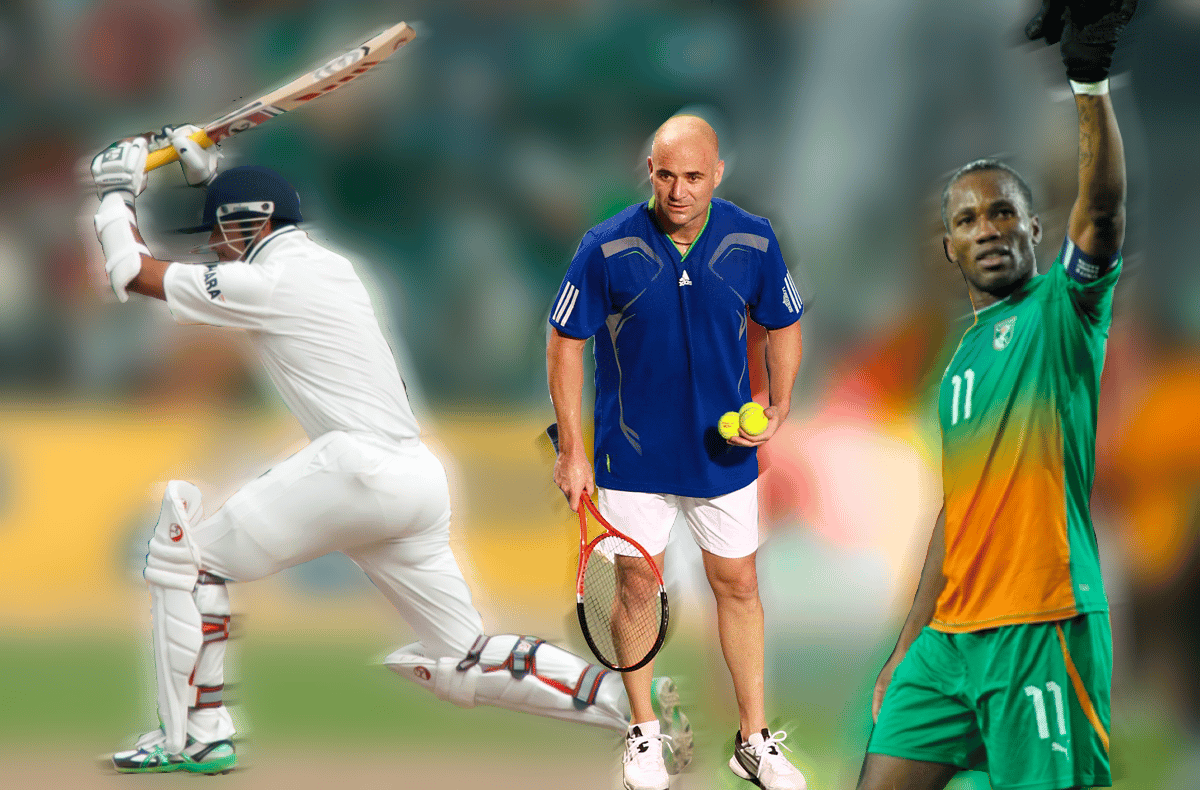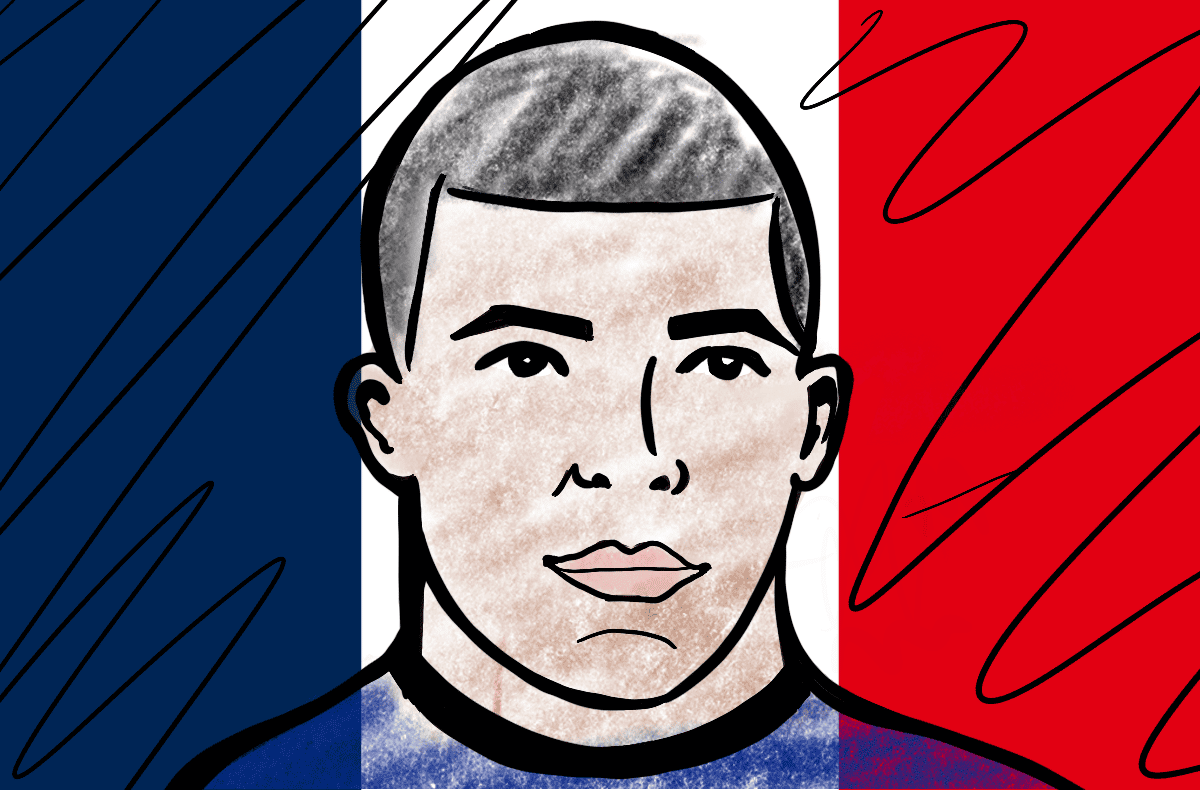
Legacies are often washed away with time like writings on a beach by the seawater that comes ashore. History never forgets, but people do.
Especially in sport, where a whole host of its admirers live and die by Barney Stinson’s theory that “New Is Always Better” from hit TV show, How I Met Your Mother. All that is televised in the present is deemed at the peak of its powers, and underthought comparisons belittling past achievements are commonplace across every sport.
Amidst such conversations, which lack both context and nuance in equal measure, the chapters about pioneers of yesteryear are closed, and legendary status is scoffed at.
Netflix’s The Last Dance documentary reopened the world’s eyes to Michael Jordan’s inexplicable brilliance, introducing a new generation to this remarkable player’s achievements. I believe it is worth following suit, doing the same for athletes whose reputations have failed to stand the test of time, since mainstream narratives have proven unkind to them over the years.
Reducing Jordan to the lowly status of a mere sportsman would be sacrilege, yet countless trailblazers of a similar talent have been disguised as forgettable, due to a blatant laziness of those who have failed to do their due diligence.
A Last Dance-style documentary would set the record straight. By plumbing the archives and giving geniuses such as director Jason Hehir the keys to capture such near-forgotten athletes’ greatness on film, we could turn the doubters into much-needed believers.
Instead of depicting a cinematic closure of a storied era, such as Michael Jordan’s with the Chicago Bulls, I believe this hypothetical documentary should focus on highlighting the barriers broken by underappreciated legends from the past.
Enter Rahul Dravid. Even during the cricketing icon’s heyday, many unjustly reduced him to a mere punching bag, due to his unrivalled ability to sustain pressure from an avalanche of attacks from some of the greatest bowlers of all time. Because of the way his incredible talent was expressed, one of the most resilient batters to grace the game was deemed “boring.”
Dravid embodied the unshakeable resolve of Test cricket, and coupled his unwillingness to concede a priceless wicket for his country with also being one of the soundest technicians to ever grace the sport.
The numbers do anything but lie as the Indian icon is still the 4th highest run-getter in Test cricket. And for those that ever put him in a box as a batter simply tailor-made for the longest format of the game, he stands as the ninth highest run-scorer in One Day Internationals.
Yet, it seems as if the now-coach of Team India was a victim of his understated persona, both on and off the pitch, as his more flamboyant peers such as Sachin Tendulkar and Yuvraj Singh—to name a few—were constantly championed.
Rahul Dravid never demanded awe or to bask in his glory; he stared adversity in the face and quietly reigned supreme for 17 straight years. A man of few words, the Indore-born stalwart was never one for sound bites about his unrelenting drive that made him the generational batter he was. VVS Laxman’s quote on his compatriot perhaps sums up an underreported facet of his enviable career: “Dravid sometimes underestimates his own talent, but if he has come somewhere close to Sachin, it was [due to his] sheer hard work.”
Much like how a young Jordan’s machinic drive during his days at the North Carolina Tar Heel Men’s basketball programme were documented in his documentary, an identical angle is worth tapping into whilst telling Dravid’s story. The makings of a rare gem who single handedly hit heights only few have in the game while never trying to make the newspapers’ back pages is a lesser known journey worth exploring.
The next under celebrated athlete I’d like to see covered in such a film would be footballer Didier Drogba. Although the larger-than-life Drogba’s demeanour was the polar opposite of Rahul Dravid, reductive narratives have similarly kept him from getting his due flowers to this day.
Those that never watched the Chelsea hero in his pomp are the ones that flock to social media to belittle his glorious career after glimpsing certain seasons where his goal record wasn’t particularly flattering.
A potential documentary on the Ivorian icon could zero in on how he ushered in the era of the sacrificial striker, unglamorously bullying sides to give Frank Lampard the stage and consistently putting the ball into the back of the net. Much like how The Last Dance highlighted Jordan’s all-encompassing influence on every yard of the court, a documentary on Drogba would give him the same treatment he deserves.
Statistical analysis minus the context is the bane of football discourse about the past: there is not a single bigger victim of this practice than the four-time Premier League champion.
At a time where operating with a striking duo was the norm in English football, the ex-Marseille goalscorer was responsible for leading the line on his back, which has become standard procedure since his revolutionary impact.
As Michael Jordan’s global impact was highlighted in The Last Dance to emphasise how he transcended basketball during the 90s, honing in on Didier Drogba’s successful attempt at using his platform to stop a civil war in Ivory Coast is damn near mandatory.
With the Elephants beating Sudan 2-1 in a World Cup qualifier to confirm their place at football’s grandest stage in 2006, the national treasure pleaded with his countrymen to put an end to a five-year running war as his teammates were understandably busy celebrating. Aside from being a number nine that set the blueprint for decades to come and being the sport’s ultimate big-game player, Drogba’s singular drive to change the fate of his country forever is alone a documentary waiting to be realised.
The final athlete I’d propose covering brings us onto tennis. Another underrated stalwart whose story deserves to be told with a different lens is Andre Agassi. While the American legend was hailed during his time as a global sporting superstar off the court, ultimately the genius of Pete Sampras completely overshadowed him.
With his fellow countryman having the better of him in 20 out of the 34 matches, Agassi was always considered second fiddle during the 90s, even though he was a pioneer in the sport.
Despite winning an incredible eight Grand Slam titles, the 52-year old’s decorated career is seldom a topic of conversation, especially due to the unrelenting excellence of the “Big 3”—Roger Federer, Novak Djokovic and Rafael Nadal.
Agassi’s accolades speak for themselves as well, with him being the first out of two players to ever win the Calendar Slam (winning all four major championships in a single calendar year) as well as the only man to win a Super Slam, which includes all four major championships, an Olympic gold medal and the ATP Finals.
Interestingly, Andre Agassi famously revealed his genuine hatred for the game for a majority of his life in his autobiography. While the tennis icon has previously cited how the constant rise and grind of elite sport wore him down, it would be intriguing to elaborate on such a controversial belief in a documentary.
Imagine Federer, who retired from tennis at 41 years young, saying that he hated the sport that had made him a legend. Furthermore, an essential conversation to explore with viewers would be discussing why Agassi decided to take crystal meth while still being an active player. As Agassi has already openly admitted to lying to the ATP after failing a drug test as well, he would be open to some probing, revealing interviews in a documentary. It would be fascinating to take a cinematic stroll inside the mind of one of the globe’s finest tennis players, especially given his complicated and unusual past.
The Last Dance remains the pinnacle of sports documentaries. It erased almost every corridor of doubt about Michael Jordan—the genius, the megalomaniac, the global phenomenon, the heartbroken son and the ultimate winner. Dravid, Drogba, Agassi or any underappreciated trailblazer in sport does not necessarily deserve a propaganda piece, but a story that highlights how flawless performance combined with human flaws is what made these great athletes into the titans they once were.


